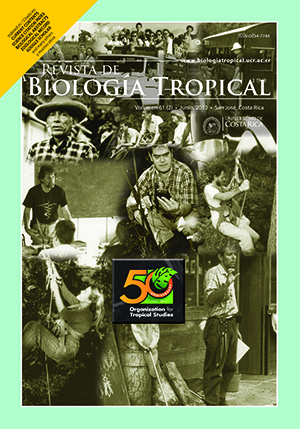Abstract
The immunosuppression caused by species of the gender Trypanosoma has been widely documented. The influence over experimental infections with Toxoplasma gondii is evident when using Trypanosoma lewisi, a natural parasite of white rats. We decided to test the effect of Trypanosoma musculi from mice, an organism with very similar biological characteristics to T. lewisi, to see if this trypanosomatid could induce a similar effect. Four groups of Swiss mice were inoculated with T. musculi previously to infection with T. gondii, and we determined the survival of the animals, as well as the number of cysts developed in the brain of survivors. We isolated and tested different strains of T. gondii from different sources. In a first experiment, the animals were previously inoculated with T. musculi at different times prior to the infection with Toxoplasma; this allowed us to determine that the immunosuppression process resulted more evident when T. musculi inoculation was made four days before. In a second experiment, we used different inoculi dose and found that it did not influenced the process. Furthermore, the results were negative when evaluating if the amount of the inoculated trypomastigote influenced the process. In order to demonstrate if there were differences in the immnosuppressive effect, related to Toxoplasma strains, groups of mice were inoculated with brain cysts of TFC, TLP, TLW and TBT strains. Excluding the TLP strain, that resulted to be very pathogenic regardless the previous inoculation with T. lewisi, the other strains kept the same pattern of immunosuppression in mice, whose survival time was shorter as the presence of cysts in the brain was higher. These observations were in agreement with an experimental immunosuppression model, associated with immunosuppressive diseases, specially cancer and AIDS.##plugins.facebook.comentarios##
Downloads
Download data is not yet available.






